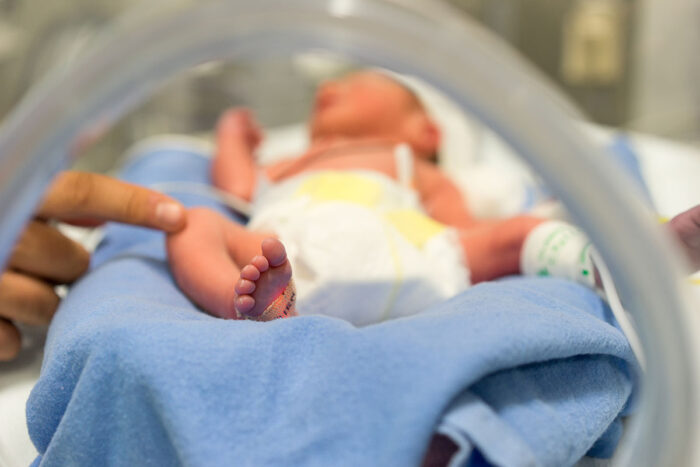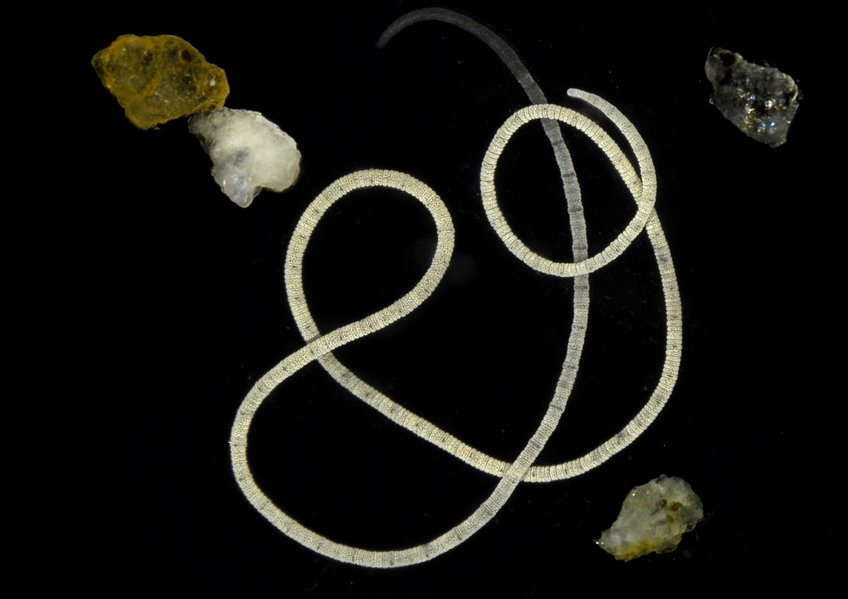2023-05-03 ワシントン大学セントルイス校

A new study from Washington University School of Medicine in St. Louis suggests that some dangerous bloodstream infections in premature infants may be caused by strains of bacteria already lurking in their gut microbiomes.
◆早産児は、未熟な臓器と多くの抗菌薬の投与により感染のリスクが高く、抗菌薬は病原体を標的とするため、腸内細菌叢を乱す可能性がある。
◆この研究は、腸内細菌叢の早期検査が、危険な菌血症の高リスクな早産児を同定するのに役立つ可能性があることを示唆している。研究者は、抗菌薬の責任ある使用が重要であると主張している。
<関連情報>
- https://source.wustl.edu/2023/05/bloodstream-infections-in-preemies-may-originate-from-their-gut-microbiomes/
- https://medicine.wustl.edu/news/dangerous-bloodstream-infections-in-preemies-may-originate-from-their-gut-microbiomes
- https://www.science.org/doi/10.1126/scitranslmed.adg5562
新生児集中治療室における腸内病原体のコロニー形成は血流感染に先行する Gut pathogen colonization precedes bloodstream infection in the neonatal intensive care unit
Drew J. Schwartz,Nitan Shalon,Kate Wardenburg,Anna DeVeaux,Meghan A. Wallace,Carla Hall-Moore,I. Malick Ndao,Janice E. Sullivan,Paula Radmacher,Marilyn Escobedo,Carey-Ann D. Burnham,Barbara B. Warner,Phillip I. Tarr and Gautam Dantas
Science Translational Medicine Published:3 May 2023
DOI:https://doi.org/10.1126/scitranslmed.adg5562
Abstract
Bacterial bloodstream infections (BSIs) resulting in late-onset sepsis affect up to half of extremely preterm infants and have substantial morbidity and mortality. Bacterial species associated with BSIs in neonatal intensive care units (NICUs) commonly colonize the preterm infant gut microbiome. Accordingly, we hypothesized that the gut microbiome is a reservoir of BSI-causing pathogenic strains that increase in abundance before BSI onset. We analyzed 550 previously published fecal metagenomes from 115 hospitalized neonates and found that recent ampicillin, gentamicin, or vancomycin exposure was associated with increased abundance of Enterobacteriaceae and Enterococcaceae in infant guts. We then performed shotgun metagenomic sequencing on 462 longitudinal fecal samples from 19 preterm infants (cases) with BSI and 37 non-BSI controls, along with whole-genome sequencing of the BSI isolates. Infants with BSI caused by Enterobacteriaceae were more likely than infants with BSI caused by other organisms to have had ampicillin, gentamicin, or vancomycin exposure in the 10 days before BSI. Relative to controls, gut microbiomes of cases had increased relative abundance of the BSI-causing species and clustered by Bray-Curtis dissimilarity according to BSI pathogen. We demonstrated that 11 of 19 (58%) of gut microbiomes before BSI, and 15 of 19 (79%) of gut microbiomes at any time, harbored the BSI isolate with fewer than 20 genomic substitutions. Last, BSI strains from the Enterobacteriaceae and Enterococcaceae families were detected in multiple infants, indicating BSI-strain transmission. Our findings support future studies to evaluate BSI risk prediction strategies based on gut microbiome abundance in hospitalized preterm infants.
Gut bacteria in infant bacteremia
The earlier an infant is born, the more susceptible that child is to blood infection and sepsis. Schwartz et al. evaluated the gut microbiomes, bloodstream isolates, and the recent antibiotic exposures of hospitalized, prematurely born infants. The authors found that antibiotic treatment likely promotes the growth of opportunistic microbes already resident in the guts of infants and that these same pathogens then go on to cause bacteremia and late-onset sepsis. These findings may support the development of diagnostic or therapeutic strategies to reduce neonatal bloodstream infections. —CAC


